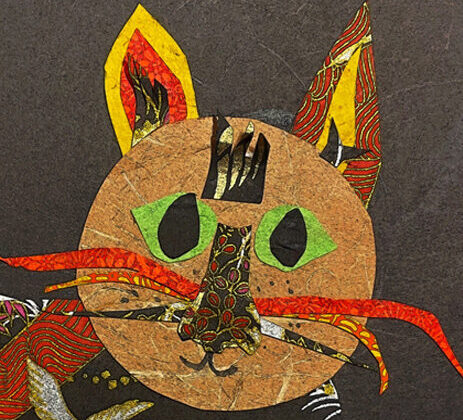Naomi Nomura
Watch
I am proud of my husband. For many years he has worked as an assembler at a watch company, and he himself is a living watch. He wakes at 6 a.m. Breakfast and a newspaper at 6:10, shower at 7:00. When he comes downstairs, it is 7:30—time for me to put the trash can out. With him being around, no watch is needed. In time the world finds a new type. Phones become mobile and smart, people rely on them for the time. Changes are so big that his company has no other option but to stop many of the assembly lines.
movie matinee
an old man settles
in his regular seat
My husband never fails his routine. I see him off and back, whispering itterasshai and okaeri. Gradually his movements become slower, heavier.
credits roll
the old man's seat
still unoccupied
Every afternoon, at the same time, I touch my watch and look at the door, expecting him to walk through.
Note: Both itterasshai and okaeri are Japanese salutations.
itterasshai = Be safe and have a nice day today.
okaeri = It’s so nice to see you back safely.
About the Author

A Japanese housewife, Naomi Nomura is the mother of two sons and lives near Tokyo with her husband. She encountered haiku in English in 2017, and it soon joined her other interests: English, cooking, and ballroom dancing.

Beautiful and poignant. It’s a real privilege reading your haibun.
Alan Summers
Call of the Page
Thank you so much. I’m very happy to know that you enjoyed my debut haibun.
Interesting…
Thank you!
Thank you so much for sharing this. I particularly like the way the second haiku is a
continuation of the first, and their placement in the prose.
Thank you for your sweet comment. I made a haiku sequence first and then developed it into a haibun.
It’s hard to believe that it’s your first haibun. I look forward to reading more of your work!